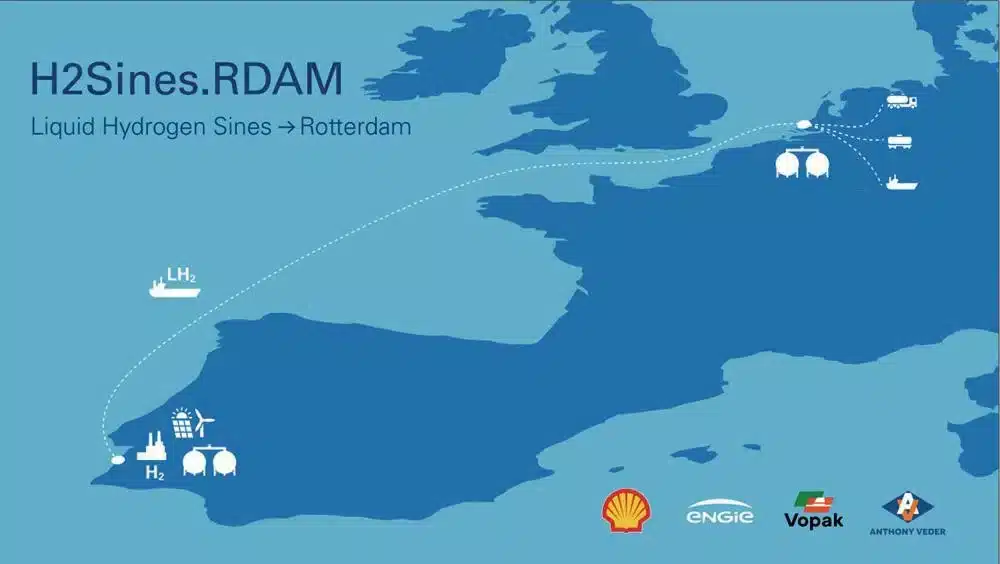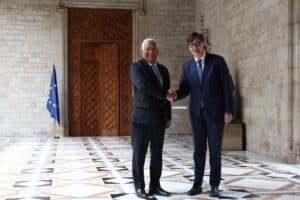H2Sines is “not project under investigation”
The European Commission has selected a hydrogen project in Sines – which it has guaranteed is not under investigation – and the maritime pipeline suitable for ‘green’ hydrogen as projects of common interest – meaning they can receive EU funding.
At issue is the new European Union list of projects of common interest and mutual interest, released today, which includes 166 cross-border energy initiatives that are eligible to apply for EU financial support because they are in line with the Green Deal.
One of the projects is the H2Sines.RDAM electrolyser, which an official source has insisted “is not the one being investigated in Portugal”, under the influence trafficking probe that has toppled the government.
“The information I have is that they have similar names, but it is a different project,” the source told Lusa, indicating that he has no further information on Portugal’s Operation Influencer investigations into the hydrogen and lithium sectors.
H2Sines.RDAM is a maritime supply chain for renewable liquid hydrogen between Sines and Rotterdam, in the Netherlands.
Still on the subject of hydrogen interconnections in Western Europe, Brussels chose the “Portugal – Spain – France – Germany corridor” as a project of common interest, which includes internal hydrogen infrastructures in Portugal, interconnections between Portugal and Spain, an internal infrastructure in Spain, the “Spain – France hydrogen interconnection, currently known as BarMar” and also infrastructures in France with a connection to Germany.
In October 2022, the governments of Portugal, France and Spain reached an agreement to speed up interconnections on the Iberian Peninsula, abandoning the existing gas-only project for another that envisages a maritime pipeline that, in addition to initially transporting this fossil fuel, will, in future, be used to transport ‘green’ hydrogen.
The heads of government and state of these three countries – António Costa, Pedro Sánchez and Emmanuel Macron – decided to go ahead with a “Green Energy Corridor“, by sea, between Barcelona and Marseille (BarMar) instead of a route through the Pyrenees (MidCat).
At the time, Portugal’s prime minister, António Costa, acknowledged that he hoped this new project could be financed by European funds through the Connecting Europe Facility (CEF), but said it would have to be considered a project of common interest.
This classification, now awarded, concerns infrastructure initiatives for the EU’s energy systems, such as interconnectors, which allow countries to benefit from accelerated licensing and financing procedures.
Projects of common interest are selected because they are considered essential infrastructure for the realisation of the European internal energy market and to help the EU achieve its energy and climate goals.
They can then apply for European funding, with the first call for proposals under the CEF being in the first half of next year, and results expected by the end of 2024.
Another Portuguese project included on this list concerns electricity interconnections, such as a Portugal-Spain interconnector between Beariz (Ourense) and Ponte de Lima and Vila Nova de Famalicão.
“Today, the Commission is taking another step to prepare the EU’s energy system for the future by adopting the first list of Projects of Common Interest and Projects of Mutual Interest fully in line with the European Green Deal,” said the EU executive in a statement.
The projects will benefit from simplified licensing and regulatory procedures and will then become eligible for EU financial support under the CEF.
Source: Lusa




















